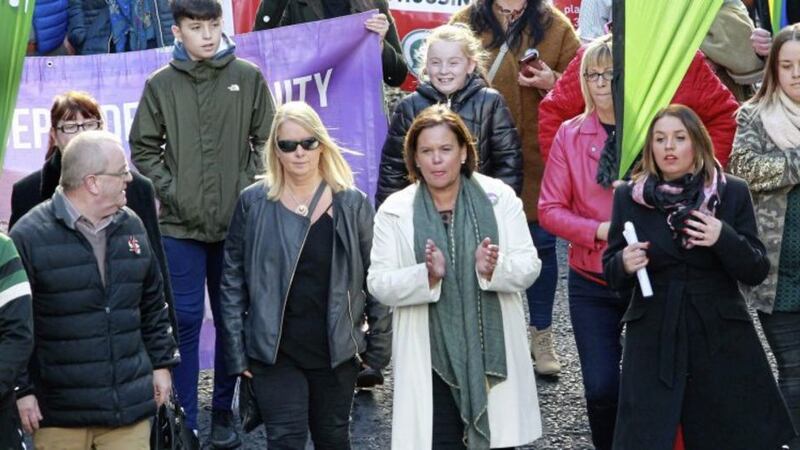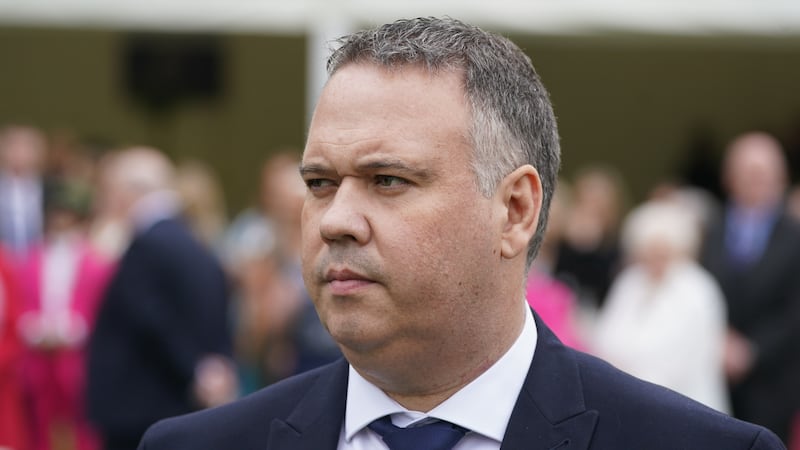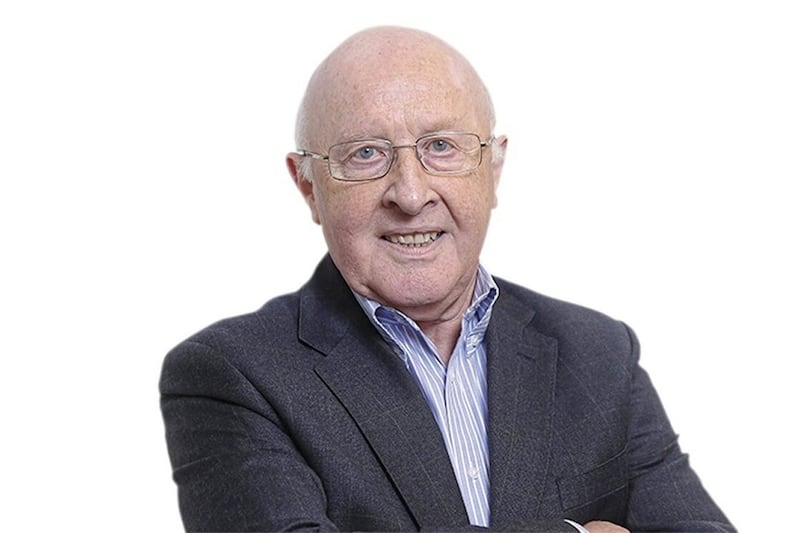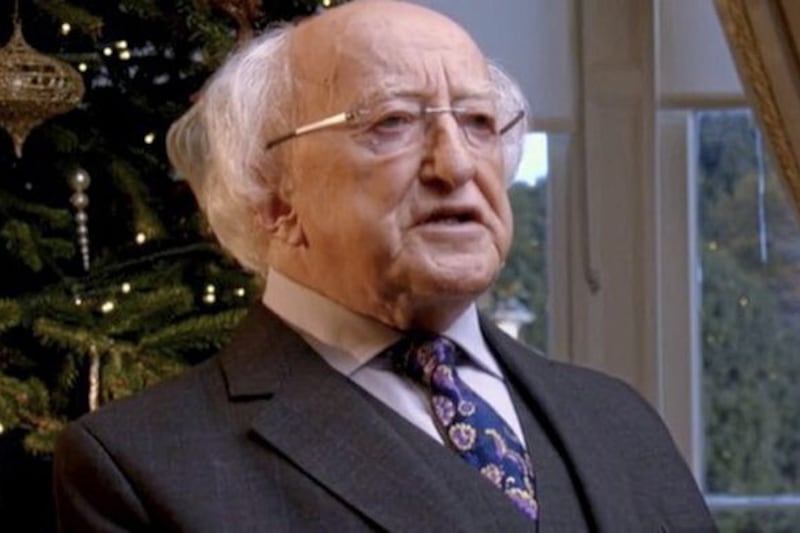Irish president, Michael D Higgins paid tribute to the “life and work” of Nobel laureate, John Hume in his keynote address marking the 50th anniversary of the 1968 October 5 civil rights' march in Derry.
Mr Higgins also singled out Mr Hume’s fellow SDLP founder, Ivan Cooper in his address at a civil rights festival in Derry on Saturday. Many observers believe the 1968 march marked the start of the Troubles.
Many of those who took part in the original march, which was attacked by the RUC in the city’s Duke Street, attended the festival at the Guildhall, including one of the march organisers, Fionnbarra O Dochartaigh. They were joined by other civil rights’ leaders from the era, including People’s Democracy founder, Michael Farrell.
In one of a number of separate commemorations, another civil rights’ leader, Eamon McCann took part in a rally outside the Guildhall.
A “Cherish all the Children” anti-abortion group, led by former Sinn Féin MLA, Francie Brolly, also staged a rally.
Several thousand Sinn Féin members and supporters also attended a march and rally at nearby Shipquay Street where they heard party president, Mary Lou McDonald call for the "battle for equality and civil rights" to continue.
President Higgins, who was given a standing ovation, said the 1968 march “galvanised” the movement for civil rights in Ireland.
The president name-checked many of those involved in the early civil rights’ campaigns, including Mr McCann and Mr O Dochartaigh as well as their fellow-organiser, Eamon Melaugh and former Stormont MP, Austin Currie as well as Dr Conn and Patricia McCluskey. He also paid tribute to the various organisations involved in the 1960s campaign
President Higgins said: “Though diverse in their backgrounds, all were united in their determination to combat the deep inequalities which scarred Northern Ireland – inequalities in housing, voting and policing – and their early campaigns focused not only on discrimination against the Catholic community but also the Travelling community.”
The president said the October 5 march brought the Northern Ireland civil rights’ movement to the attention of the world.
In a moving tribute, President Higgins described former SDLP leader, Mr Hume as a man who symbolised efforts to bring peace to Ireland.
He told the audience – which included Mr Hume’s wife, Pat – that the civil rights’ movement was the crucible from which Mr Hume emerged as a “national and international politician.”
The president said: “He dedicated his political life to realising its programme and later its emancipatory potential.”
It would be unjust if Mr Hume’s contribution was eclipsed by current disputes.
“Let us above all recall the vision of John Hume, so rooted in the experience of the civil rights movement, of a shared Ireland, one that recognises the unionist and nationalist traditions, one that is capable of reconciling communities, one that, North and South, preserves human dignity and vindicates and expands fundamental human rights, in the economic, cultural and social spheres.
“And if we remain true to that vision, we can not only sustain peace on our island but can, together, confront the shared challenges of the future with confidence and courage,” President Higgins said.








